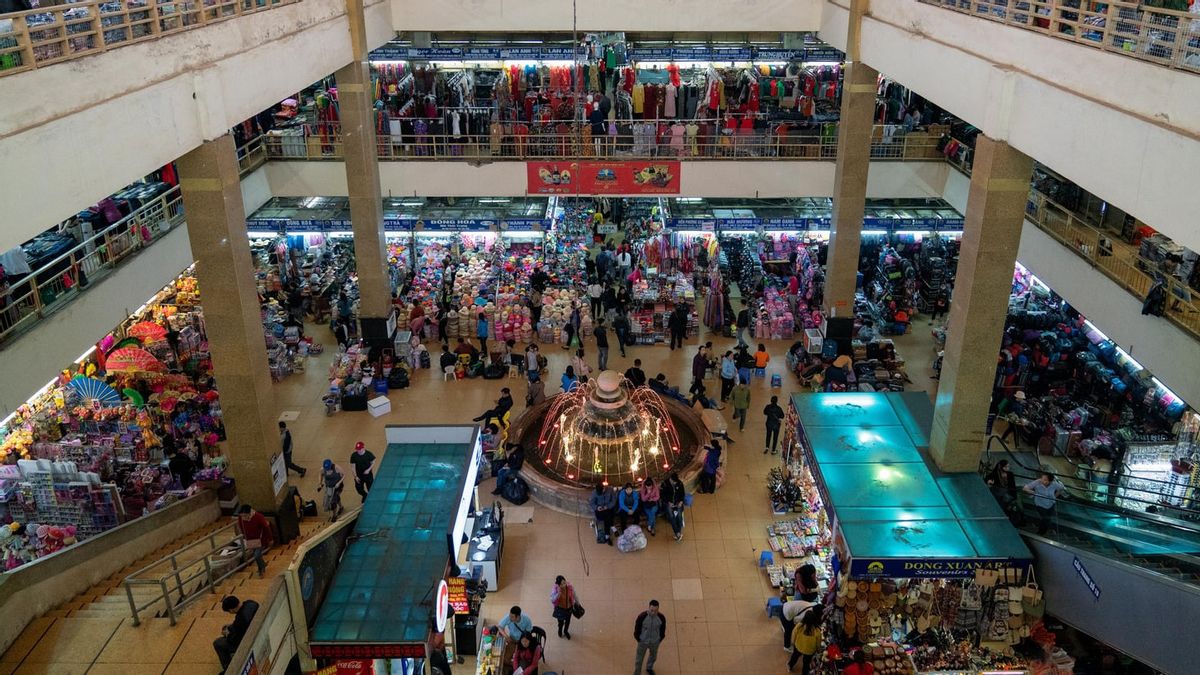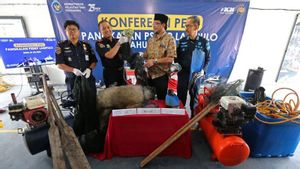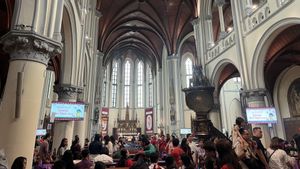JAKARTA - The spread of the corona virus or COVID-19 in Indonesia continues to increase. As a result, companies have started implementing work from home (WFH) and shifting systems for their employees. Even shopping centers or malls have started to lack visitors, but there are still tenants who have to keep their shops open.
Former Deputy Governor of DKI Jakarta Sandiaga Uno suggested that shop tenants in shopping centers who still have to open shops to avoid layoffs in the midst of the COVID-19 outbreak, can serve buyers with a take-home system. That is, prohibiting eating on the spot.
"This is a difficult decision, but it must be taken that many malls have started to close. I encourage the tenant to only serve takeaway," he said, in a video conference with journalists, in Jakarta, Thursday, March 26.
According to Sandi, currently, community participation is urgently needed to help food stores in shopping centers by utilizing online transportation applications to order food.
"Two impacts can be felt. First, orders for online transportation drivers. Second, the drop in turnover from tenants has not been too drastic. Because now orders should be encouraged as much as possible through online orders," he explained.
Moreover, Sandi said, currently some MSMEs have to be forced to close and some have laid off their employees for fear of not being able to cover their obligations.
"This is a serious strategic step that the government will immediately take," he said.
Previously, the Chairman of the Indonesian Shopping Center Tenants Association (HIPPINDO) Budihardjo Iduansjah revealed that there had been a decline in the shopping center business as a result of COVID-19. However, he could not reveal the amount of the loss based on rupiah.
"I can't get information from rupiah, I don't have any data. But the traffic of friends selling clothes, bags, shoes has decreased by 50 percent. February is the most pronounced. It's been around March, how many weeks it has dropped that much. So it does drop for DKI Jakarta, "he told VOI, in Jakarta, Tuesday, March 17.
Budihardjo explained that in order to survive in the midst of a decline in turnover of up to 50 percent, mall entrepreneurs in Jakarta must implement changes in operating hours.
"Opening hours. We are reducing. In the mall, it is better to open late and close early in the morning so that the cost is not too big. Previously, two shifts now become one long shift," he said.
The English, Chinese, Japanese, Arabic, and French versions are automatically generated by the AI. So there may still be inaccuracies in translating, please always see Indonesian as our main language. (system supported by DigitalSiber.id)













